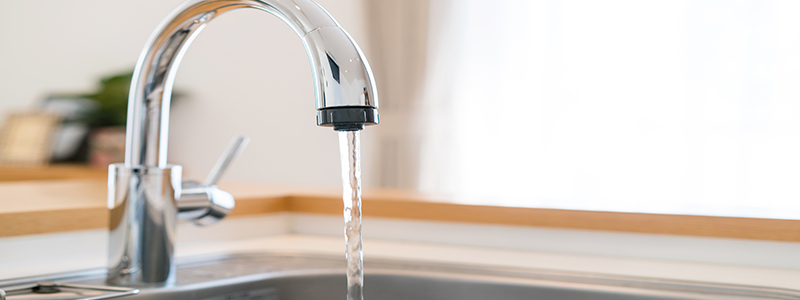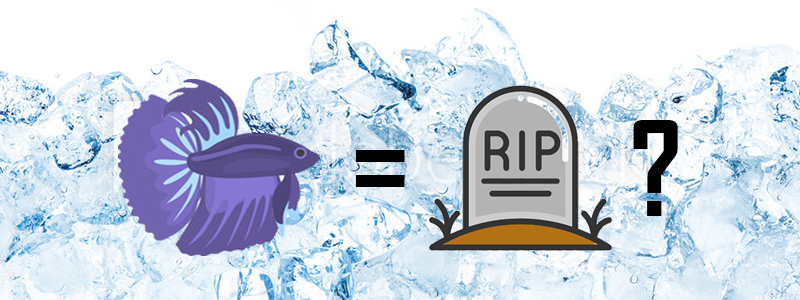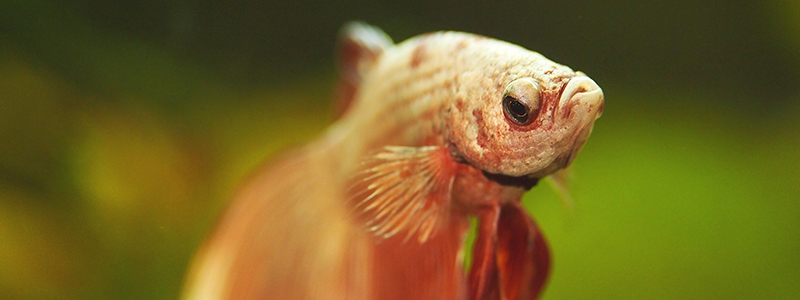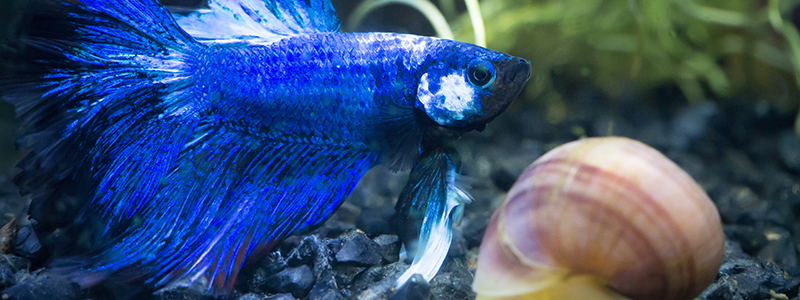Just in case you don’t know, the Betta fish natively originates from Cambodia, Vietnam, and Thailand. If you ever thought they lived or can be found in puddles then you’re wrong. The natural habitat for a Betta is like a shallow stagnant river with lots of vegetation and insects. So, if you’ve chosen the betta fish as your pet, that’s great. Yet, you’ll still need to become aware of the ideal fish tank temperatures for your new pet.
Keeping your Betta fish in cold water will weaken its immune system. Long term it becomes too slow to move, and eat and is easily prone to diseases. Soon enough, your Betta fish will end up dead.
I know you must have heard that the Betta fish is a low-maintenance aquarium fish a lot of times. Maybe that’s why you even got it and I’m not disputing that. However, putting your Betta fish in cold water will do a lot of harm than good.
What’s the Ideal Water Temperature for A Betta Fish?
The ideal water temperature for your Betta fish tank shouldn’t exceed or fall below 78-80°F.
Don’t get me wrong, a Betta fish can still survive a temperature range of 72-82 F (which is outside the ideal temperature range) but this would lead to many health issues.
You’ve seen how cold water can be harmful to your Betta fish, what about hot water?
While cold water slows down the metabolism rate of your Betta fish, hot water, on the other hand, increases it rapidly making your Betta fish age too fast. This simply means the ideal temperature for your Betta fish tank needs to be maintained.
What Kind of Water Does A Betta Fish Need?
As we all know, the water looks the same. Whether it’s from the tap in your kitchen or a bottle that you got at a local store. Nevertheless, as I’ve earlier mentioned, the type of water your Betta fish lives in can have a lot of influence on its health.
So, just like our normal oxygen intake, the Betta fish needs to live in water that’s just right and a replica of its natural habitat. I’ll be talking about different water options for your Betta fish and how to go about making each suitable for your pet fish.
Note: The ideal pH level for your Betta fish tank should be kept between 6.5 and 8. Check out this video below to know how to maintain pH levels in an aquarium.
Tap Water
This is the most available and inexpensive option for everyone or at least, most of us. Tap water usually has added chemicals in it like chlorine for purification purposes although this also depends on where you live. Chlorine [and any other added water chemical] makes tap water safe enough for our consumption but harmful for your Betta fish.
However, don’t give up on tap water yet. There are many high-quality and affordable water conditioners that can remove these chemicals in less than a minute. With the chemicals removed, the water becomes safe and comfortable for your Betta fish to live in. I’d recommend you to buy either Betta-specific water conditioners or one that’s generally for freshwater fish. Either is fine.
With the absence of chlorine and other water chemicals, tap water is an excellent choice for your Betta fish. Why? Well, there are a lot of minerals and nutrients in it that make it the ideal thriving environment for a Betta fish.
Using a thermometer, you can also easily make the perfect temperature for your Betta as you mix hot and cold water.
If the room temperature is cooler then you’ll need to get a heater for your Betta fish tank to help maintain the ideal water temperature range.
Well-Water
I mentioned that you’ll need to use water conditioners for your tap water to make it habitable for a Betta fish. Having this in mind, you might be considering well-water since it has no added chemicals or because that’s the only water source in your community.
Whatever your reason might be, you’ll be making a grave mistake if you think well-water is natural enough and safe for your Betta fish. Don’t forget that there’s a high chance of well-water coming in contact with chemicals used in fertilizers and pesticides. This means you’ll need to condition the water too before making use of it.
You might need to make use of other options than a water conditioner to get rid of the heavy metals to be on the safe side. If you’ve conditioned the well-water and you’re still unsure, check with a local pet store if they can test a sample for you.
I highly suggest you do this to be quite sure that the pH level is perfect for your Betta fish.
Purified Water
This is also known as distilled water and it’s quite different from the water coming out of your tap. Purified water has been processed to remove everything in it [chemicals, minerals, and nutrients] so that all you’re left with is pure water.
If you’re looking to go with this option then you will need it to treat it, control the pH levels and add nutrients to it. Without doing any of these, your Betta fish will die. It’s like staying in a room with no air inflow or oxygen. That’s terrible, right? Exactly.
I don’t see the need for you to make use of purified water for your Betta fish tank. There’s a lot of stress involved in measuring and adding the right amounts of nutrients and pH levels.
My advice? Go for tap water conditioned with a water conditioner or even bottled water.
Bottled Water
Compared to tap water, bottled water is an expensive option but unlike purified water, it hasn’t undergone processing. The minerals and nutrients are still intact. As long as the pH levels are in line with the ideal level for a Betta fish then you can go with this option.
Just make sure you always confirm the pH level before adding it to your fish tank. This is because water brands have different pH levels.
Quick Tip: If you’re going with this option, keep it in the same room with the fish tank so that they’ll have the same water temperatures in the end. I’d also recommend making use of a stress coat additive…it’s necessary for spring water.
There are still other water options that you can use for your Betta fish tank. However, making use of tap water or bottled water is what I’d recommend.

Why Your Betta Fish Tank Needs A Heater
The best way to heat your Betta fish’s water is to make use of a small water heater. If you live in a climate where a temperature drop below 78 F is very common or constant then a heater will do you much good.
Take care not to overheat the water though, you’ll need to make sure that the water temperature doesn’t exceed 80 F.
Next is the size, you need to use the right size for your fish tank. If the water heater is too big, then that’s a lot of heat for your Betta fish.
Bettas are usually kept in small gallon tanks [like 2-10] so you’ll need to check the specifications of the water heater you’re about to go for. This will help you not get a water heater that’s bigger than the fish tank you have. You’ll also need to check the water temperature regularly [I advise daily] to make sure that the temperature stays consistent.
I found the video below quite helpful as it enlightened me on why using a heater for maintaining the ideal temperature of a Betta fish tank is important.
Betta Fish’s Water Care
Each time your Betta fish poops or there’s leftover food or debris, the pH levels increase. As a result, you’ll need to regularly change the water. If your Betta fish’s tank is small, then the water’s condition changes even faster.
Change out the water regularly or buy a filtration system that will prevent the water from running too fast. Bettas do better in slow-moving or still water.
Warm water remains the best for your Betta’s health so don’t be tempted to raise or lower the water temperature too fast. You can increase the water temperature by a few degrees daily. Don’t forget to install an air stone in your fish’s tank as it’ll give proper and adequate oxygen to your Betta.
Conclusion: Can Cold Water Kill a Betta Fish?
If you’re not looking to sacrifice a considerable amount of your Betta’s life then don’t use cold water. It’s like torturing your pet fish. Keeping your Betta at its ideal temperature range will make for its healthier life.
The Betta fish is a lovely pet but knowing the ideal temperature needs, water type and care will leave you both satisfied and happy.





